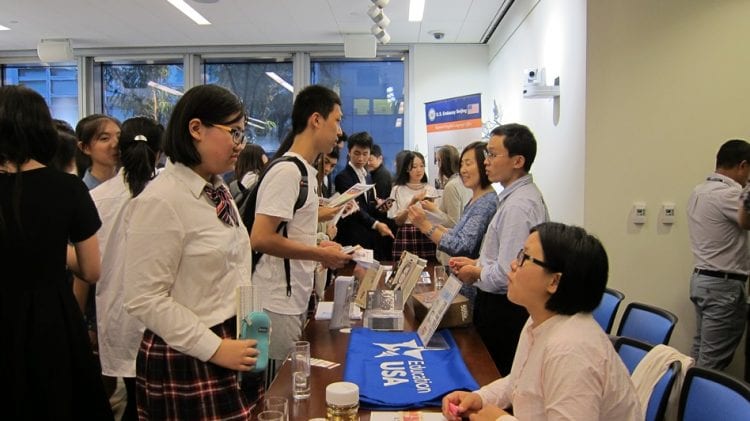
By Joshua Axelrod
Jerusalem is a city with a long, complicated history that means something different yet equally profound to many groups.
With that in mind, it is no wonder that President Donald Trump’s choice to officially recognize Jerusalem as the capital of Israel and move the United States’ embassy from Tel Aviv to Jerusalem was met with almost unanimous global condemnation, with everyone from Palestinian leadership to Pope Francis blasting the move.
To fully grasp the international community’s overwhelmingly negative reaction to Trump’s decision, one must be reminded why three presidential administrations continually chose to forgo moving the U.S. embassy in Israel, and what Trump upending five decades of U.S. foreign policy symbolizes to the rest of the world.
Jerusalem Embassy Act
After the 1967 Six Day War, Israel emerged with full control of Jerusalem. Most of the world chose not to recognize Israel’s claim on East Jerusalem, including the U.S. The lack of progress in Israeli-Palestinian peace talks and the controversy surrounding Jerusalem’s jurisdiction led the U.S. to keep its embassy in Tel Aviv.
In 1995, Congress passed the Jerusalem Embassy Act, which set a deadline for the U.S. to move its embassy to Jerusalem. There was a baked-in loophole, however, that allowed a six-month delay on the relocation if the president “determines … that such suspension is necessary to protect the national security interests of the United States.”
Then-President Bill Clinton was the first to sign the waiver delaying the embassy move. His administration argued at the time that “a premature focus on Jerusalem” could “undermine negotiations and complicate the chances for peace.”
His administration’s official stance was that moving the embassy to Jerusalem would imply that the U.S. recognizes Israel’s sovereignty over Jerusalem. They believed that whether such a move coincided with an official change in U.S. policy regarding Jerusalem or not, it would still cause global confusion on where the U.S. stood and potentially incite violence throughout the Middle East.
That notion never changed during the Clinton administration, and with peace talks remaining largely unsuccessful for the next two decades, then-Presidents George W. Bush and Barack Obama continually chose to sign the waiver and maintain the status quo. Even Trump continued the tradition at first, signing the waiver in June 2017.
The Great Disruptor
Trump either did not know or chose to ignore how his proclamation would play abroad, nor did he seem cognizant of the reasons why Clinton, Bush and Obama continually chose to delay the embassy move.
Unfortunately, he had no reason to honor his predecessors’ policies or incentive to pacify the international community, as the only folks he has ever shown an interest in pandering to are his ever-faithful and deeply-populist political base.
Populists, by definition, don’t care about foreign policy; to them, the only affairs that matter are domestic. The only members of Trump’s base who may be concerned with Jerusalem are the many evangelicals he mobilized, who probably would prefer that Israel control the Holy City.
Pleasing those folks is enough to assure him that he is doing a good job. If Trump continues to push his “America First” agenda and placate his evangelical supporters, he will stay in their good graces, consequences be damned.
Potential Fallout
The only party this move placated was Israel, which believes it has had legal dominion over Jerusalem since the Six Day War. Israeli Prime Minister Benjamin Netanyahu has been open about his desire to make Jerusalem Israel’s “eternal capital,” so of course he hailed Trump’s decision as a “great service for peace.”
The Palestinian community unsurprisingly balked at Trump’s announcement. Demographically, East Jerusalem is predominantly Arab, with many Palestinian residents who feel they have been treated poorly since Israel stripped them of their international recognition as a country. That has fostered a belief that East Jerusalem, at the very least, rightfully should be under Palestinian control.
Most terrorist groups are, naturally, more sympathetic to the Palestinians’ claim on Jerusalem than Israel’s.
After Trump’s proclamation, ISIS smugly reminded the world that “60 years and Jerusalem has been in the hands of the Jews, and it is only now that people cry when the Crusaders announced today as their capital.”
Trump played right into ISIS’ hands, and chances are good his decision will factor into its recruitment tactics going forward. He is providing terrorist groups with all the motivation they need to continue their violent campaigns.
Exhibit A: The Israeli Shin Bet security service released statistics that showed the number of terrorist attacks in Israel, the West Bank and Gaza tripled from November to December 2017 — right after Trump made his Jerusalem decision public.
That information is only correlative, but the fact it could be plausibly construed as a result of Trump’s precedent-destroying negligence is a troubling sign for how this saga will play out going forward.
Caveat: The opinions expressed in this blog are those of the author. They do not necessarily express the views of either The Institute of Public Diplomacy and Global Communication or The George Washington University.







